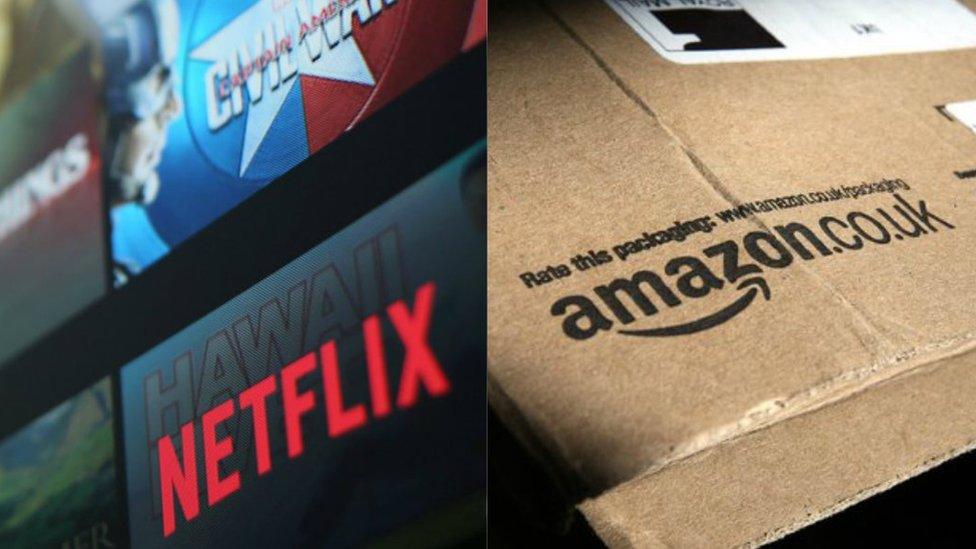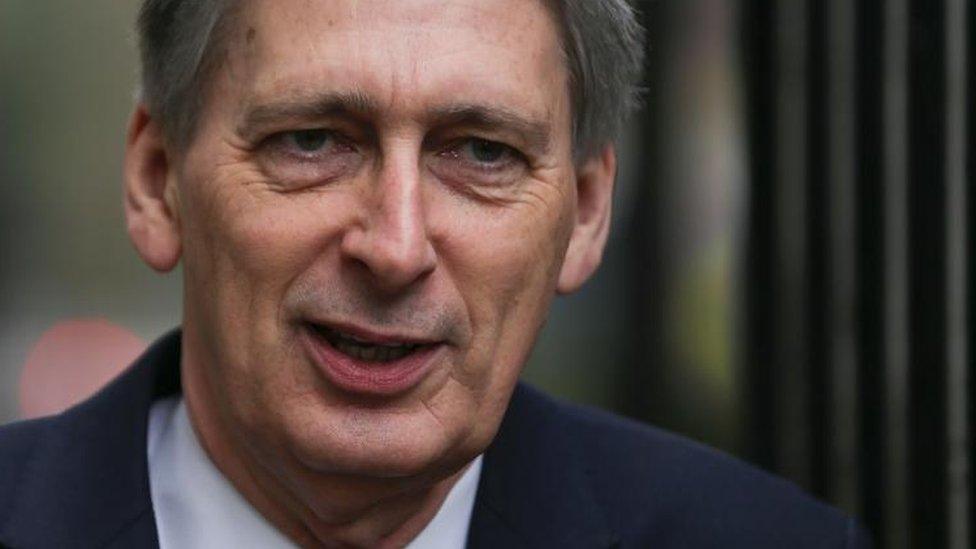Spring Budget 2017: Crackdown on 'subscription traps' planned
- Published

Companies including Amazon and Netflix could be forced to stop taking card details when people sign up to a free trial

People who inadvertently end up subscribing for services after signing up for free trials are to be offered more protection.
Plans to cut confusing small print and end the cycle of 'subscription traps' will be set out in next week's Budget.
Chancellor Philip Hammond will outline a crackdown on practices which lead to people wasting their money.
Firms will be forced to make terms and conditions shorter and clearer, with fines for those who mistreat customers.
Spring Budget: What else you can expect
The move follows concerns that many people are falling into a 'subscription trap', by signing up for a paid-for service without meaning to - for example, when a paid subscription starts automatically after a free trial has ended.
Citizens Advice estimates that two million consumers, external each year have problems cancelling subscriptions.
People taking up offers for free trials of anything from slimming pills and beauty treatments to video streaming and e-book subscriptions, can find regular payments are taken from their credit or debit card without their apparent authorisation.
A Citizens Advice survey found four out of five people, external who had a problem with unwanted recurring payments didn't realise they had signed up to the payments until money was taken from their accounts.
These so-called "continuous payment subscriptions" are automatic payments which work in a similar way to a direct debit, with consumers giving a supplier or retailer permission to take payments on their card.
Under the proposed changes, companies such as Amazon and Netflix could be forced to stop taking people's card details when they sign up to a free trial.

'I just panicked'
Julian Simms from Castleford, West Yorkshire, told BBC's Watchdog what happened when he saw an advert pop up on his phone for a 'free trial' for some face cream.
He paid £3.95 for postage and packaging and it arrived the next day.
But two weeks later he noticed that his bank balance was significantly lower than it should have been. Two payments, one of £59 and another of £69, had been debited from his account.
Mr Simms said: "When I saw the amounts of money that had been taken from my account I just panicked. I was scared that hundreds of pounds was going to get taken out."
Once he tracked the company down, he managed to get one payment refunded and the other stopped, after speaking to his bank.
James Daley, from the consumer research group Fairer Finance, said many people ended up paying hundreds of pounds for services they didn't need.
"We've all signed up to something because it's offered free today but it's going to end up, very quickly converting into a monthly subscription that's a lot more expensive," he said.

What is a continuous payment authority?
A CPA, also known as a 'recurring payment', is a regular payment linked to your credit or debit card - it is not a direct debit
The company can take payment on whatever day they want for whatever amount they choose
They can be set up in person, online or over the phone and often there is no written record of them
They are often used for magazine subscriptions and gym memberships
Consumers have the legal right to cancel a CPA through the company concerned or your bank

How will they simplify terms and conditions?
Guy Anker, from the website Money Saving Expert, agreed that consumers needed help.
"At times the onus is on us - we should check what's coming up after the free trial is over. But companies need to do a lot more.
"Companies should alert you just before they take that first charge, just so that you're sure."
The plans to simplify small print involve looking at the standard use of tick boxes and trying to improve understanding about which terms people find confusing.
There will also be new powers to impose fines on companies that mistreat customers.
And the government will allow consumer enforcement bodies such as the Competition and Markets Authority (CMA) to ask civil courts to order fines against companies, including those in unregulated markets, which breach consumer law.
- Published3 March 2017

- Published4 March 2017
